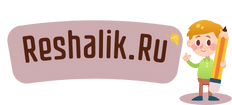Please paraphrase the following question text in English: Read the text, try to focus on its essential facts, and choose the most suitable heading below for each paragraph. 1) What is Education? 2) Formal Education 3) Informal Education 4) Different Kinds of Formal Education Informal and formal education Education includes different kinds of learning experiences. In its broadest sense, we consider education to be the ways in which people learn skills, gain knowledge and understanding about the world and about themselves. One useful scheme for discussing education is to divide these ways of learning into two types: informal and formal. Informal education involves people in learning during their daily life. For example, children learn their language simply by hearing and by trying to speak themselves. In the same informal manner, they learn to dress themselves, to eat with good manners, to ride a bicycle, or to make a telephone call. Education is also informal when people try to get information or to learn skills on their own initiative without a teacher. To do so, they may visit a book shop, library or museum. They may watch a television show, look at a videotape, or listen to a radio programme. They do not have to pass tests or exams. We consider formal education to be the instruction given at different kinds of schools, colleges, universities. In most countries, people enter a system of formal education during their early childhood. In this type of education, the people, who are in charge of education, decide what to teach. Then learners study those things with the teachers at the head. Teachers expect learners to come to school regularly and on time, to work at about the same speed as their classmates, and to pass tests and exams. Learners have to pass the exams to show how well they have progressed in their learning. At the end of their learning, learners may earn a diploma, a certificate, or a degree as a mark of their success over the years. The school systems of all modem nations provide both general and vocational education. Most countries also offer special education programs for gifted or for physically or mentally handicapped children. Adult education programmes are provided for people who wish to take up their education after leaving school. Most countries spend a large amount of time and money for formal education of their citizens.
Тема: Образование и его типыОписание: Образование включает в себя различные типы обучения. В наиболее широком смысле мы считаем образование способами, которыми люди приобретают навыки, получают знания и понимание о мире и о себе. Полезной схемой для обсуждения образования является разделение этих способов на формальное и неформальное образование. Формальное образование — это официальное обучение, которое происходит в школах, колледжах, университетах и других формальных учебных заведениях. Неформальное образование — это образование, получаемое вне формальных учебных заведений, например, через чтение книг, посещение музеев или общение с другими людьми. Существуют различные виды формального образования, такие как начальное, среднее и высшее образование, каждое из которых имеет свои особенности и цели.
Пример использования: Прочитайте текст, попытайтесь сосредоточиться на его основных фактах и выберите наиболее подходящее заглавие для каждого параграфа. 1) Что такое образование? 2) Формальное образование 3) Неформальное образование 4) Различные виды формального образования.
Совет: Для более легкого понимания текста ознакомьтесь со следующими определениями: формальное образование — официальное обучение в учебных заведениях, неформальное образование — обучение, получаемое вне учебных заведений.
Упражнение: Каковы основные различия между формальным и неформальным образованием?
